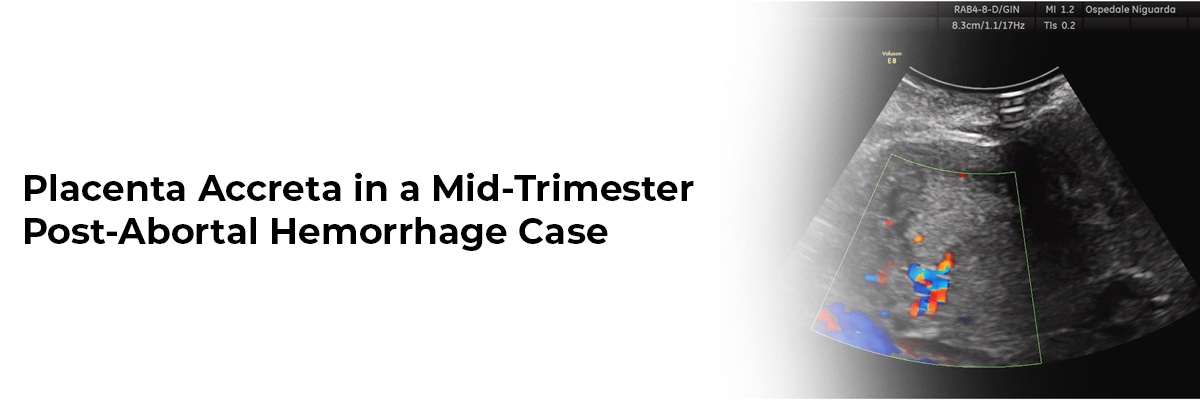
 IJCP Editorial Team
IJCP Editorial Team
Placenta accreta in a mid-trimester post-abortal hemorrhage case
A 36-year-old lady, P3L3A1, who had undergone three previous cesarean sections (LSCS) with retained placenta and experienced profuse vaginal bleeding––including a fetus expulsion episode at 18 weeks while en route to the hospital––presented in the labor room.
The initial resuscitation showed no signs of placental separation, and the bleeding persisted. Due to the torrential bleeding and a history of three previous cesarean deliveries, the patient was promptly transferred to the operating theatre for an exploratory laparotomy, with a provisional diagnosis of a morbidly adherent placenta causing severe hemorrhage.
During laparotomy, the anterior surface of the lower uterine segment displayed numerous engorged blood vessels while the bladder remained unaffected. Considering the possibility of a morbidly adherent placenta, a subtotal hysterectomy was carried out, successfully achieving hemostasis thereafter. Two units of packed cell volume (PCV) were transfused intraoperatively, and the patient was subsequently moved to the intensive care unit (ICU) for postoperative observation.
The woman’s postoperative course was uneventful, and she was discharged in satisfactory condition on her sixth postoperative day. The specimen was sent for histopathological examination.
Diligent monitoring and prompt intervention in obstetric emergencies are crucial in preventing maternal mortality. This case underscores the importance of patient monitoring, timely decision-making, and active collaboration by a multidisciplinary team in improving outcomes in cases with post-abortal hemorrhage in the mid-trimester – with a history of previous cesarean deliveries and placenta accreta spectrum.
Source: Gautam A, Malik N, Jain S. Indian J ObstetGynecol Res. 2023;10(3):362-365

IJCP Editorial Team
Comprising seasoned professionals and experts from the medical field, the IJCP editorial team is dedicated to delivering timely and accurate content and thriving to provide attention-grabbing information for the readers. What sets them apart are their diverse expertise, spanning academia, research, and clinical practice, and their dedication to upholding the highest standards of quality and integrity. With a wealth of experience and a commitment to excellence, the IJCP editorial team strives to provide valuable perspectives, the latest trends, and in-depth analyses across various medical domains, all in a way that keeps you interested and engaged.






















Please login to comment on this article